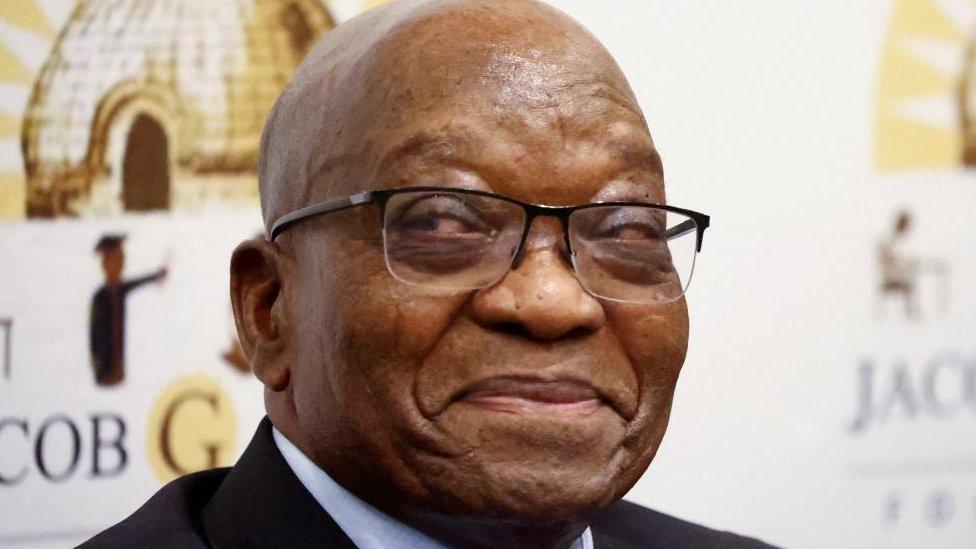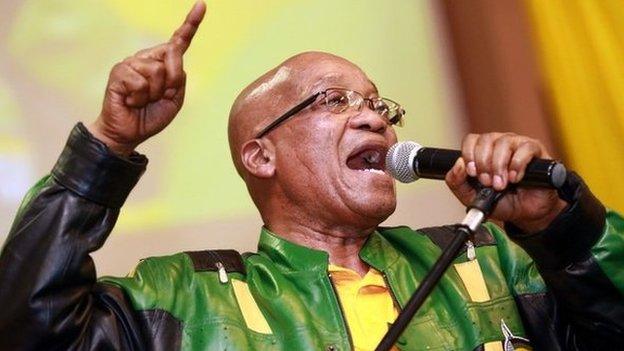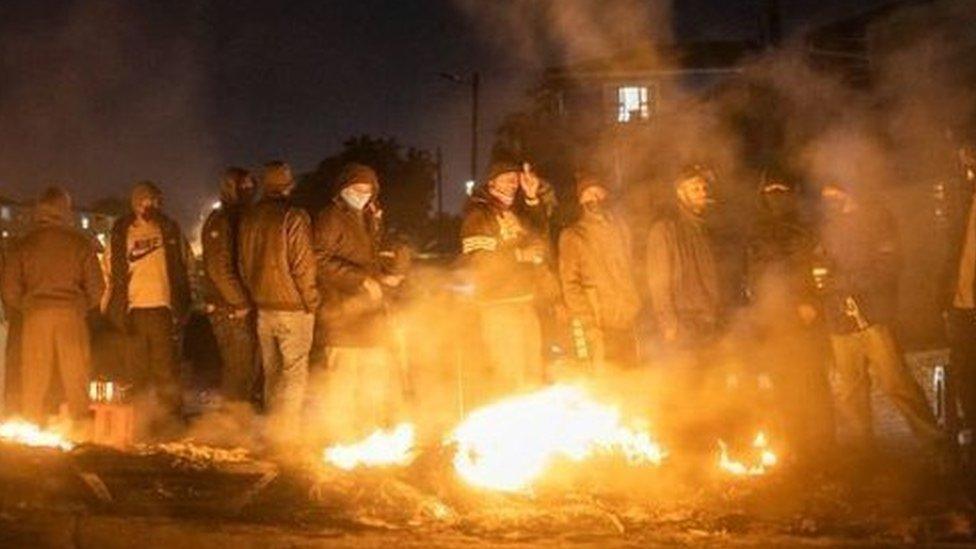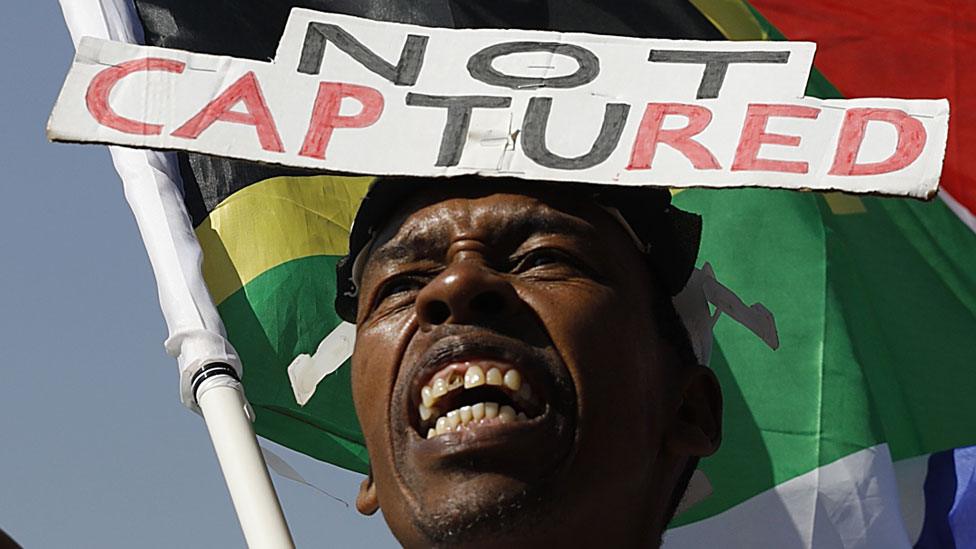South Africa's ex-President Jacob Zuma won't return to prison due to overcrowding
- Published

Jacob Zuma, 81, resigned as president in February 2018 amid corruption allegations
South Africa's former President Jacob Zuma has been spared from returning to prison, with officials saying this is to ease overcrowding.
Zuma, who was sentenced to 15 months for contempt of court, surrendered himself to the authorities on Friday.
The 81-year-old had previously been freed on medical parole - in a move ruled illegal by the courts.
Justice Minister Ronald Lamola said he had been given remission to address overcrowding in prisons.
Zuma is one of more than 9,000 low-risk prisoners released under a scheme which began in April to make space in South Africa's jails, official say.
Mr Lamola said the decision had been taken by the prison authorities without any political interference, and that Zuma had not been given any special treatment.
The remission process aims to alleviate strain on the system by releasing low-risk offenders.
A prisons department spokesperson told the BBC that South Africa's prison population was currently 47% higher than official capacity.
This was made worse by the fact that inmates allegedly set one prison on fire last week. This meant nearly 4,000 inmates were transported to other facilities where they didn't have beds.
South Africa's Commissioner of Prisons Makgothi Thobakgale said Zuma had reported to the Estcourt Correctional Facility in his home province of KwaZulu-Natal on Friday morning and was "admitted" into the system, before being released an hour later.
Lobby group AfriForum has accused South Africa's prisons department of helping Zuma evade justice.
South Africa's main opposition party, the Democratic Alliance, has said it will legally challenge the remission granted to the former president. While the ruling African National Congress (ANC) in KwaZulu-Natal has welcomed the decision and said it is in the best interest of the country.
More broadly the reaction has also been mixed. Some South Africans say the government should focus on pressing issues such as frequent power outages, high crime rates, poverty and youth unemployment, while others say Zuma should go back to jail to serve the rest of his term.
Zuma's jailing in 2021 sparked protests and riots that left more than 350 people dead.
He was sentenced after refusing to testify before a panel probing financial sleaze and cronyism under his presidency.
He was however freed on medical parole just two months into his term.
An appeals court last November found the release was illegally granted and ordered Zuma back to prison to finish his sentence. Last month, the constitutional court rejected an attempt to overturn this decision.
Related topics
- Published6 April 2018

- Published29 July 2021

- Published15 July 2019
